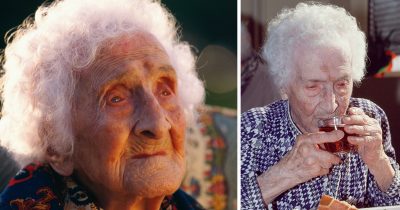
Hollywood in the 1950s was a glamorous but ruthless industry, where the fate of actors and actresses was often dictated by powerful studios.
Among the many talented stars of the era, one actress stood out for her stunning beauty, undeniable talent, and tragic career downfall.
Once poised for greatness, she was suddenly blacklisted from one of the biggest studios, leaving many to wonder what went wrong…
In the early 1950s, Lee Grant actress was considered one of the most beautiful women in Hollywood.
With her classic features, graceful presence, and captivating screen performances, she quickly gained attention from major studios. Producers saw her as the next big thing, casting her in a series of films that showcased her charm and versatility.
Grant made her film debut in the 1951 film version of Detective Story, starring Kirk Douglas, which earned her an Academy Award for Best Supporting Actress nomination and the Best Actress Award at the Cannes Film Festival.
Audiences adored her, and critics praised her performances. Everything seemed to be going perfectly—until it wasn’t.
Mysterious Fall from Grace
Despite her rapid success, Grant’s career took a shocking turn when she was suddenly banned from one of Hollywood’s top studios. The decision was swift and left many confused. How could a rising star, with everything going for her, be shut out of the industry that once embraced her?
Rumors began swirling. Some claimed she had clashed with powerful executives, refusing to conform to their demands. Others suggested that her personal life had become a problem for the studio, as Hollywood was known for tightly controlling the images of its stars. A few even believed she had been blacklisted for reasons beyond her control—perhaps as part of the harsh politics of the entertainment business.
CBS detailed that Grant gave an impassioned eulogy in 1951 at the memorial service for actor J. Edward Bromberg, during which she implied that his death was caused by the stress of being called before the House Un-American Activities Committee (HUAC).

For the next 12 years, her career wouldn’t be the same.
The Cost of Hollywood’s Power Struggles
During the Golden Age of Hollywood, studios had immense control over actors. If a star defied the industry’s unwritten rules, they could be blacklisted, their contracts revoked, and their careers destroyed overnight. Many talented performers saw their dreams crushed simply because they didn’t fit the mold of what the studios wanted.
Grant, once on the path to superstardom, became another casualty of the studio system.
While Grant later appeared in projects like Valley of the Dolls, Columbo, Shampoo, and Mulholland Drive – and eventually won an American Academy Award for Best Supporting Actress – she struggled to find work throughout the 50s and early 60s. The offers stopped coming, and her name gradually faded from the headlines.
A Legacy That Lives On
Though her career was unfairly cut short, her beauty, talent, and the films she starred in remain a testament to what could have been. Hollywood may have moved on, but true movie lovers still remember her as one of the most striking and underrated stars of her time.
Her story serves as a reminder of how unpredictable fame can be and how even the brightest stars can be dimmed by forces beyond their control.
Today, in an era where actors have more freedom than before, her struggles highlight the dark side of classic Hollywood — a world where talent sadly wasn’t always enough to survive.
READ MORE
- Exclusive: Facts about Roseanne Barr we never knew
- Golden Girls; what they were really like – exclusive interview with show writer




